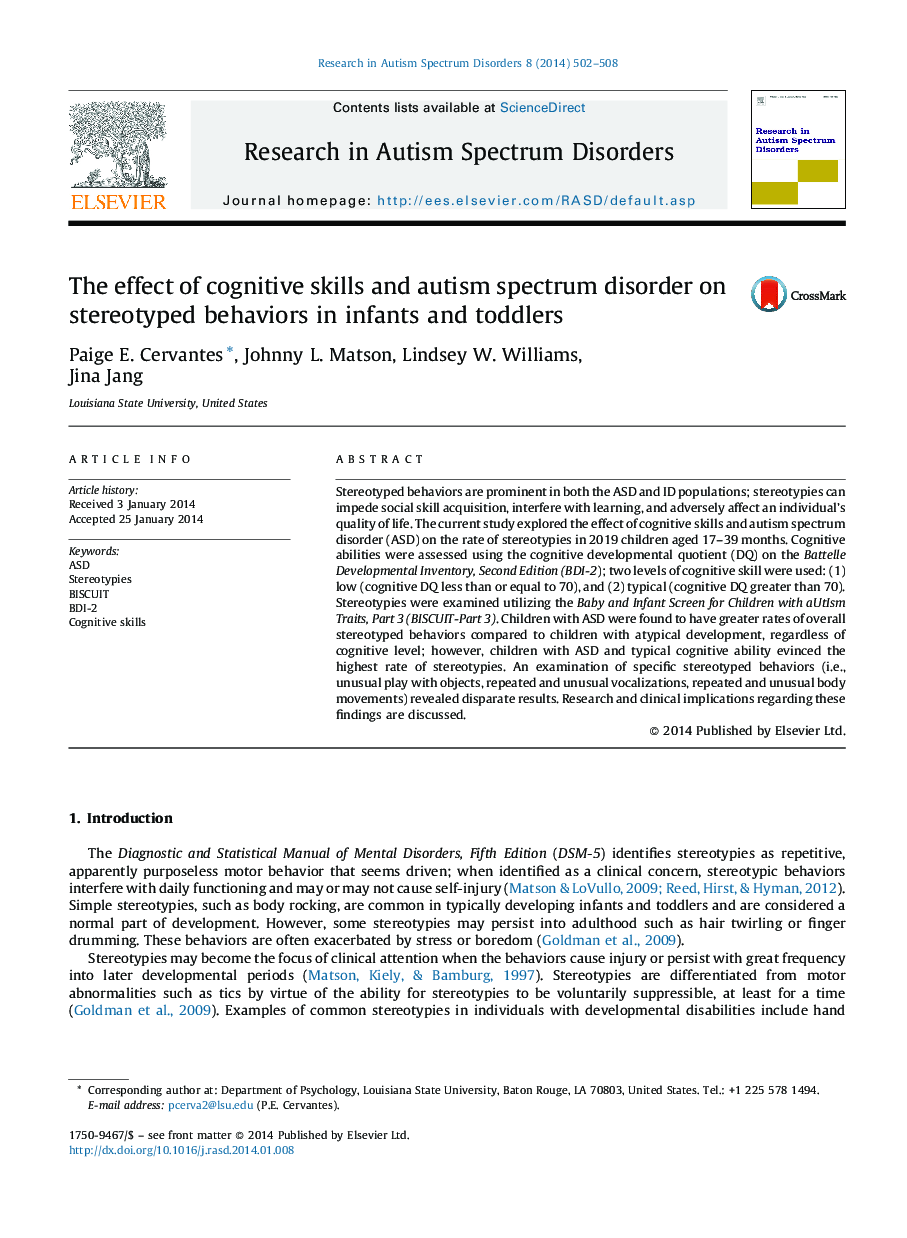| کد مقاله | کد نشریه | سال انتشار | مقاله انگلیسی | نسخه تمام متن |
|---|---|---|---|---|
| 10317179 | 621864 | 2014 | 7 صفحه PDF | دانلود رایگان |
عنوان انگلیسی مقاله ISI
The effect of cognitive skills and autism spectrum disorder on stereotyped behaviors in infants and toddlers
ترجمه فارسی عنوان
تأثیر مهارتهای شناختی و اختلالات طیف اوتیسم بر رفتارهای کلیشه ای نوزادان و کودکان نوپا
دانلود مقاله + سفارش ترجمه
دانلود مقاله ISI انگلیسی
رایگان برای ایرانیان
کلمات کلیدی
موضوعات مرتبط
علوم زیستی و بیوفناوری
علم عصب شناسی
علوم اعصاب رفتاری
چکیده انگلیسی
Stereotyped behaviors are prominent in both the ASD and ID populations; stereotypies can impede social skill acquisition, interfere with learning, and adversely affect an individual's quality of life. The current study explored the effect of cognitive skills and autism spectrum disorder (ASD) on the rate of stereotypies in 2019 children aged 17-39 months. Cognitive abilities were assessed using the cognitive developmental quotient (DQ) on the Battelle Developmental Inventory, Second Edition (BDI-2); two levels of cognitive skill were used: (1) low (cognitive DQ less than or equal to 70), and (2) typical (cognitive DQ greater than 70). Stereotypies were examined utilizing the Baby and Infant Screen for Children with aUtIsm Traits, Part 3 (BISCUIT-Part 3). Children with ASD were found to have greater rates of overall stereotyped behaviors compared to children with atypical development, regardless of cognitive level; however, children with ASD and typical cognitive ability evinced the highest rate of stereotypies. An examination of specific stereotyped behaviors (i.e., unusual play with objects, repeated and unusual vocalizations, repeated and unusual body movements) revealed disparate results. Research and clinical implications regarding these findings are discussed.
ناشر
Database: Elsevier - ScienceDirect (ساینس دایرکت)
Journal: Research in Autism Spectrum Disorders - Volume 8, Issue 5, May 2014, Pages 502-508
Journal: Research in Autism Spectrum Disorders - Volume 8, Issue 5, May 2014, Pages 502-508
نویسندگان
Paige E. Cervantes, Johnny L. Matson, Lindsey W. Williams, Jina Jang,
